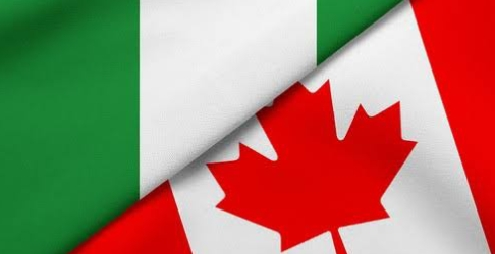In a surprising international development, a Canadian Federal Court recently classified Nigeria’s two major political parties—the All Progressives Congress (APC) and the Peoples Democratic Party (PDP)—as terrorist organizations. This verdict, handed down on June 17, 2025, formed part of a case involving a former member of both parties who sought asylum in Canada but was denied based on allegations linking the parties to political violence and subversion of democracy in Nigeria.
Both APC and PDP have strongly rejected this ruling. The PDP described the decision as biased, unsubstantiated, and lacking a clear evidential basis. Similarly, the APC dismissed the Canadian court’s jurisdiction over Nigeria’s political affairs, affirming that Nigerian courts and institutions hold the sole authority over such matters.
The ruling stems from Canada’s Immigration and Refugee Protection Act, which the Federal Court used to justify denying asylum on the grounds that the applicant was affiliated with groups involved in violent activities aimed at intimidating political opponents and disrupting democratic processes. The court cited historic electoral violence in Nigeria, particularly noting events from the 2003 elections and subsequent incidents.
Legal experts have clarified that while this classification holds no legal weight within Nigeria, it carries significant international implications. Nigerians affiliated with either party might now face increased scrutiny when applying for visas, asylum, and residency permits in countries that observe Canadian legal decisions as influential precedents. This could impact politicians, supporters, as well as ordinary citizens linked to the APC and PDP.
The verdict also highlights growing international impatience with Nigeria’s electoral and political system, drawing attention to unresolved challenges of political violence and governance integrity. It serves as a stark reminder of the reputational risks Nigeria faces on the global stage, pushing for reforms to bolster democratic governance and reduce political conflicts.
The Nigerian government and foreign ministry have moved quickly to reject the ruling, calling it a misrepresentation of the nation’s political landscape and an infringement on its sovereignty. Diplomatic efforts are underway to address the fallout and preserve Nigeria’s international relationships.
This unprecedented judgment is a call to action for Nigerian political actors to prioritize peace, fair competition, and democratic values, ensuring the country’s politics reflect its aspirations for stability and progress. The ruling also stresses the importance of a legal and political framework that commands respect not only domestically but internationally.
More than news- Its Icegate

